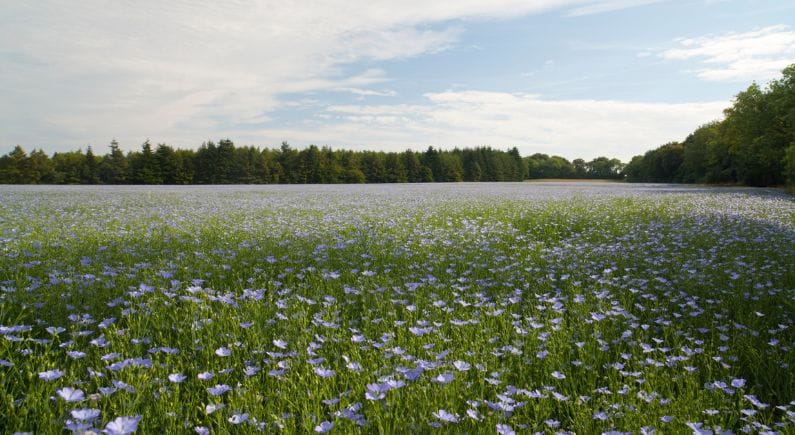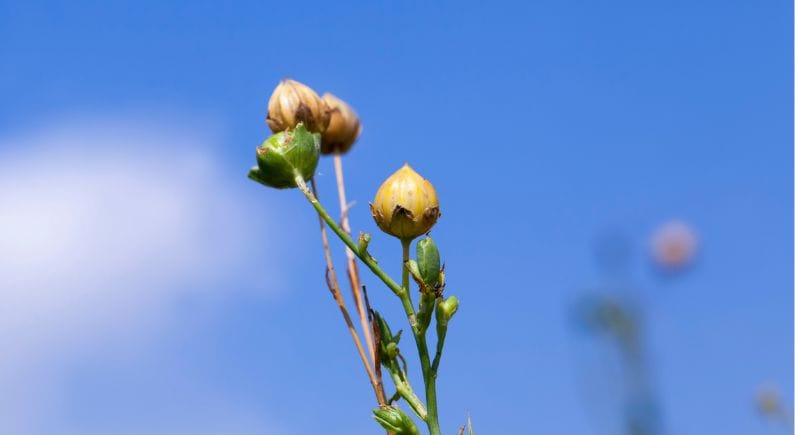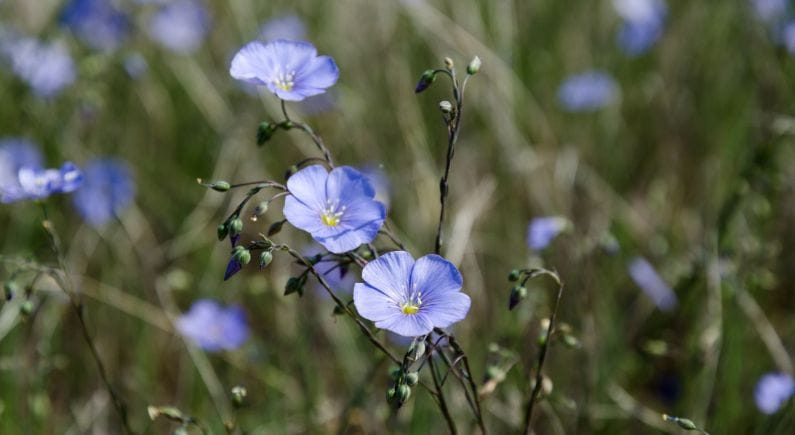
A new cosmetic active sourced from conservation agriculture, or how Expanscience is expanding on the meaning of sustainable beauty
In late March, we attended the Expanscience seminar in the preamble of InCosmetics global that will be held in Paris in mid-April, where they announced a new cosmetics active.
In the past few years, conservation agriculture has gained increasingly more traction in the sustainability discourse, and with good reason. Soil Conservation Agriculture involves revisiting the overall farming system with the 3 principles (permanent soil coverage, sowing without tillage, diversity and crop rotation) as a common thread.
Several sectors, including the fashion industry, have started to dip their toes in these regenerative techniques. Using this agricultural method for cosmetics application has only just started to be explored and understood by a small handful of companies, but the potential benefits are huge – both for the people and the planet.
Conservation agriculture and its environmental benefits
Conservation agriculture is a type of farming method that maximises crop yields whilst, at the same time, minimising any potential impact on the environment for increased biodiversity.
This approach is based on three main principles:
- Leaving the soil as undisturbed as possible
- Covering the soil permanently with crops or crop residues
- Rotating crops regularly

Because of this, the benefits that conservation agriculture can generate are significant. They include better biodiversity, reduced waste, optimisation of natural resources, promotion of a circular approach, and more stable and secure livelihoods for local farmers and communities.
What about cosmetics?
As we mentioned earlier, some fashion brands have already started to support conservation agriculture by, for example, helping cotton farmers embrace more sustainable practices. But how, exactly, can the cosmetics industry benefit from conservation agriculture?
It’s all about reducing environmental impact.
Despite more and more beauty and skincare brands turning to natural formulations in a bid to become “greener” and “cleaner”, one question always remains: their impact at farm level.
The vast majority of companies in the cosmetics industry still don’t have a full view of this crucial aspect but, thankfully, many of them are now starting to look at conservation agriculture as a way to drastically limit any harmful effects on the environment.
The main shift is, therefore, on starting to produce cosmetics ingredients in a way that regenerates the soil instead of depleting it – and that’s exactly what conservation agriculture does.

A new active ingredient that regenerates the skin and the soil
Being committed to ethical and sustainable practices is not a new thing for French-based cosmetics formulator Expanscience. In 2018, in fact, the company was the first cosmetics ingredients supplier globally to receive the important B Corp certification.
And it’s precisely this unwavering commitment that has led Expanscience to develop its new active ingredient through conservation agriculture practices. The name of the ingredient itself, Gaïaline®, is inspired by Gaïa, the Greek goddess of the Earth, to signify its powerful bond with nature.
An extract from locally-grown French flaxseeds, Gaïaline® is an ingredient sourced form a certified regenerative and conservation agriculture farm obtained through molecular distillation – in itself, a sustainable process. Gaïaline®, extracted from flaxseed oil, directly processed on Ludovic's farm which is based a mere 32 km from Expanscience’s factory.
Enriched with unsaponifiable compounds, such as phytosterols, Gaïaline® is a liposoluble active ingredient that regenerates the skin by boosting the production of ceramides, collagen, and hyaluronic acid, and protects the hair from daily damages including heat, colouring, and styling.

Better skin, hair, and planet
Beyond delivering excellent results on both skin and hair, the way Gaïaline® is produced has also delivered several impressive benefits for the environment.
These include:
- A noticeable increase in fauna sightings (such as roe deer, heron, egret, little owl, hare, and wild boar) around the farm, which points to the resurgence of life within natural habitats.
- Healthier, more prosperous soils that are more resilient and can better withstand climate change.
- The adoption of no-till practices significantly reduces emissions associated with soil preparation. 130 tons of carbon are sequestrated, on Ludovic's agricultural exploitation, annually.
- By prioritizing local sourcing and working with a partner based less than 35 km from its factory, Expanscience not only reduce its environmental footprint, but also support and stimulate the local economy.
Natural is good. Regenerative is better
Moving from traditional forms of agriculture to regenerative methods such as conservation agriculture is not only going to become a necessity to safeguard the environment, but it is also quickly finding its application in the most varied sectors – including cosmetics.
By working with responsible, local farmers, companies like Expanscience can create new active ingredients that are not only 100% natural, but that also hugely minimise their impact on the environment right at the source of production.
Is conservation agriculture the way forward for cosmetics formulators, then? We certainly believe it’s one of the best ways in which truly “green” products can be created – from farm to consumer.

